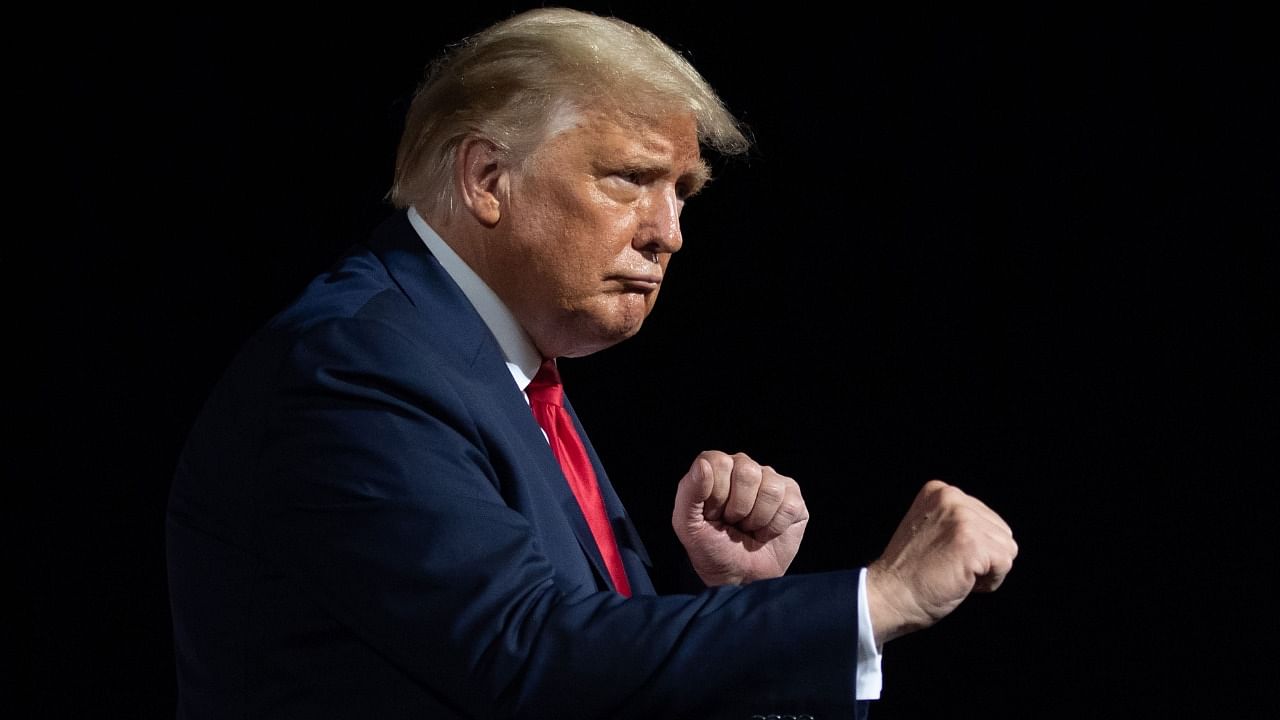
A congressional panel investigating last year's mob assault on the US Capitol laid out its case Thursday that Donald Trump and his claims of a stolen election were at the heart of what amounted to an "attempted coup" to remain in power.
In a prime-time presentation of its findings from a year-long probe, the special committee is seeking to persuade a divided country of the existence of a deep-rooted and ongoing plot -- orchestrated by the former president -- to overturn the result of the 2020 election won by Joe Biden.
"President Trump summoned the mob, assembled the mob and lit the flame of this attack," the Republican vice chair of the panel, Liz Cheney, said in her opening remarks.
Minutes earlier, as he opened the panel's first public hearing, Democratic committee chief Bennie Thompson accused Trump of being "at the center of this conspiracy."
"January 6 was the culmination of an attempted coup -- a brazen attempt, as one rioter put it shortly after January 6 -- to overthrow the government. The violence was no accident."
Rioters acted "at the encouragement of the president of the United States," he added.
The panel's carefully produced presentation made use of testimony given behind closed doors by some of Trump's most senior and trusted advisors, including former attorney general Bill Barr and Trump's son-in-law and senior aide, Jared Kushner.
The committee also aired grim footage, some of it never before seen, of the violence that engulfed the seat of government, leaving five people dead.
Thompson warned that the threat to American democracy persisted.
"The conspiracy to thwart the will of the people is not over," he said.
"There are those in this country who thirst for power but have no love or respect for what makes America great: devotion to the Constitution, allegiance to the rule of law, our shared journey to build a more perfect Union."
The panel aims to demonstrate that the violence was part of a broader drive by Trump and his inner circle to illegitimately cling to power, tearing up the Constitution and more than two centuries of peaceful transitions from one administration to the next.
Thursday's session and five subsequent hearings over the coming weeks will focus on Trump's role in the multi-pronged effort to return him to the Oval Office by disenfranchising millions of voters.
Trump has defiantly dismissed the probe as a baseless "witch hunt" -- but the public hearings were clearly on his mind Thursday as he fired off a largely false tirade on his social media platform, defending the insurrection as "the greatest movement in the history of our Country to Make America Great Again."
The case the committee plans to make is that Trump laid the groundwork for the insurrection through months of lies about fraud in an election described by his own administration as the most secure ever.
His White House is accused of involvement in several potentially illegal schemes to aid the effort, including a plot to seize voting machines and another to appoint fake "alternative electors" from swing states who would ignore the will of their voters and hand victory to Trump.
In Thursday's hearing, the committee is planning to present live testimony from two people who interacted with members of the neofascist organization the Proud Boys on January 6 and in the days leading to the violence.
Emmy-winning British documentary filmmaker Nick Quested will testify about his experience shadowing members of the Proud Boys in the days leading up to January 6 and his interactions with them on the day itself.
Capitol Police Officer Caroline Edwards, who was present at the breach of the first barricade, will describe sustaining head injuries in clashes with the Proud Boys.
Earlier this week, the group's leader and four lieutenants were charged with seditious conspiracy.
The hearings will differ from Trump's two impeachments, however, in that he will not be represented in the room as he is not on trial -- except perhaps in the court of public opinion.
Trump's daughter Ivanka and Kushner, as well as the former president's eldest son Don Jr., have all cooperated voluntarily with the committee.
Nevertheless, a number of his most loyal counter-punchers are expected to circle the wagons, questioning any damning testimony and challenging the validity of the investigation.
"It is the most political and least legitimate committee in American history," the leader of the House Republican minority, Kevin McCarthy, told reporters at the Capitol.
In fact, Congress has wide-ranging oversight powers, and a Trump-appointed federal judge last month emphatically rejected Republicans' arguments that the committee is illegitimate.
The committee has not confirmed its plans for after the initial slate of hearings, but at least one more presentation and a final report are expected in the fall.